Herbs for natural rest
Nature provides us with a number of plants and products that can be very helpful for treating our health, among those medicinal herbs that help to fight insomnia and its causes. In the following pages, we have developed a guide of the most efficient plants that may work as remedies for insomnia and a list of essential oils from A to Z, that when used topically can help bring on sleep.

+ Natural herb remedies make a therapy as old as human civilization. Today, the use of natural herb remedies has been proven scientifically for their therapeutic properties and diverse uses, in powders, grains, capsules, teas or tinctures, salves and gels. Alone or combined with other herbs, many healing plants can be used in cases of insomnia, and they are not as strong as many over-the-counter or prescribed sleep aids. Natural herbal sleep aids do not create dependency. However, before beginning natural herb treatment, it's recommended to see a doctor.
NOTE
You should always consult your physician before starting any herbal treatment.
Red poppy
(Papaverroheas)
• Parts used The petals of the flowers that are cultivated in the summer. They are stored away, conserved and used to make infusions or used as extracts and powders.
• Native to the Far East it is used for its sedative and antispasmodic effects. Red poppy is very useful against anxiety and insomnia. You can take up to 300 mg of dried and ground petals (they are sold in capsules).
• Warning. Red poppy should not be administered to small children or pregnant women.
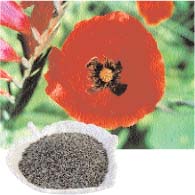
INFUSION FOR CHILDHOOD
For children older than 5 years of age
Place ½ teaspoon of dried red poppy petals in a container with 1 cup of boiling water. Allow to steep for 3 minutes and strain. This infusion can be used up to 3 times a day. It can also be used cold on eyelids for decongestion and eye baths.

ESSENTIAL OILS FROM A TO Z
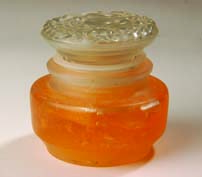
BASIL
The strong, intense aroma of basil can be great for slowing down the mind and getting prepared for sleep. To fight against insomnia, it's suggested to mix basil essential oil with another neutral oil. It can be blended with clary sage, geranium, lavender and lemon balm.
Safety. Basil is not recommended for pregnant women.
BERGAMOT
Perfect for depressive states because it can lift up the spirits through its stimulant and refreshing action.
Safety. Bergamot can irritate sensitive skin. Avoid direct contact with the sun after using it. It mixes well with geranium, juniper, jasmine, lavender, tangerine, neroli, patchouli, camomile, rosemary, marjoram, lemon and ylang ylang.
WARNING
Essential oils are for external use only, they should never be ingested. Keep stored away from children and keep away from your eyes.
California poppy
(Eschscholtzia californica)
• Parts used. The flowers are prepared in infusions and used to make tinctures, syrups, powders and capsules.
• As its name suggests, it is native to California. Today, it is cultivated and used worldwide.
• From the poppy family, California poppy has an active alkaloid compound, that has sedative and painkilling effects. However, it doesn't have any toxic or addictive properties. It is recommended if you are nervous, stressed and suffering from insomnia.
• Warning. It can produce side effects during pregnancy, breast-feeding and glaucoma. It's best to take interval breaks from using this treatment (1 week without using this herb for every 40 continuous days of treatment).
IN CAPSULES
Calming remedy. It is recommended taking 2 capsules a day of California poppy, 30 minutes before each meal. For trouble sleeping, 1 capsule before going to bed.
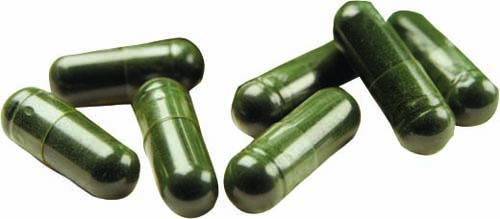
EFFECTIVE COMBINATION
Infusion to help you sleep well. This infusion is prepared with a base of California poppy, hawthorn and passion flower. Mix 1 tablespoon of each of these herbs and add 1 tablespoon of this herb mixture to 1 cup of water. Prepare the infusion by adding the herbs to boiling water, turn off the heat, set to steep for 3 to 4 minutes and strain. It is used before dinner. You can drink it sweetened with raw sugar or honey.
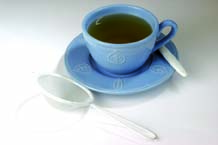
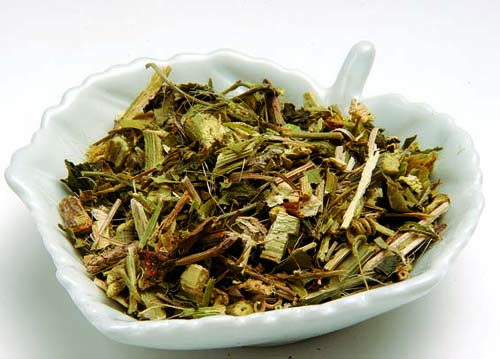
WHAT IS AROMATHERAPY?
Aromatherapy is a holistic remedy that is thought of as a technique to care for the body with the use of essential oils extracted from plants. These oils can stimulate physical, mental and emotional well-being and at the same time they can restore the body's balance and internal harmony. Aromatherapy can be used in massages, compresses, vapors, humidifiers, baths, creams and gargles. Using oils in massage therapy is the most common use because the chemical compounds of the oils are absorbed through the skin, from where they enter the blood flow and produce chemical reactions similar to some medicines. Essential oils should be used under the supervision of a medical professional.

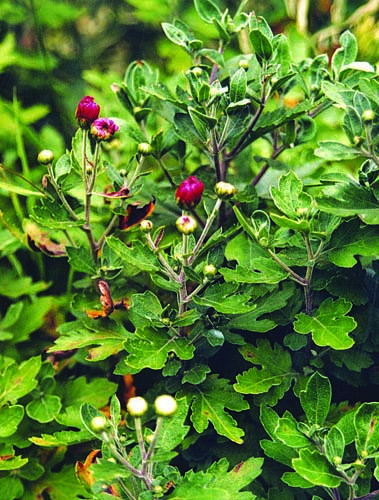
Skullcap
(Scutellaria lateriflora)
• Parts used The aerials (leaves and flowers) are cultivated in the summer. They are used to make infusions, capsules and tinctures.
• Native to North America, the plant has a bitter, almost astringent taste.
• Supports the nervous system and calms stress and anxiety. It has an antispasmodic effect, useful when treating the worries that can cause muscular tension. Ideal for fighting insomnia.
ESSENTIAL OILS FROM A TO Z
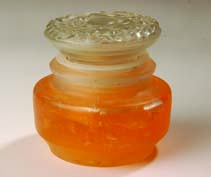
CAMOMILE
Sedative and excellent soothing oil. The herb's sweet fragrance, between floral and fruity, is great for inducing repairing sleep, that helps you get rid of anxiety, anger and fear. It induces a sense of calm and well-being, far away from worries. Combine with bergamot, geranium, jasmine, lavender and ylang ylang.
Safety. It shouldn't be used during the first four months of pregnancy. In large doses it can have an hypnotic effect.
CINNAMON
Recommended for when you feel sad. It has vigorous properties and aids in diverting anxieties before going to bed.
Safety. Do not use during pregnancy, breast-feeding and always use it diluted.
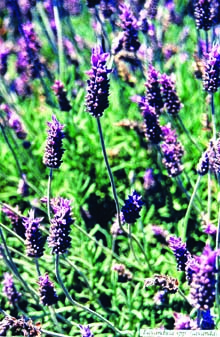
Lavender
(Lavandula officinalis)
• Parts used. The flowers and to a lesser extent the stems are used to make infusions and decoctions.
• Lavender grows all over Europe and in Northern Africa; also, it's cultivated in a number of countries such as France and the US. It has a strong, pleasant fragrance. The leaves can be added to salads, replacing mint.
• It is used to soothe and promote sleep, helping to relieve heart palpitations and insomnia. It can be taken as an infusion and lavender oil can be rubbed on the skin or used in baths.
SECRET FOR SLEEPLESS NIGHTS
A little bag of dreams
Prepare a sack of dried hops and place it inside your pillow. Breathing in the herb's aroma will help you sleep better.

Hops
(Humulus lupulus)
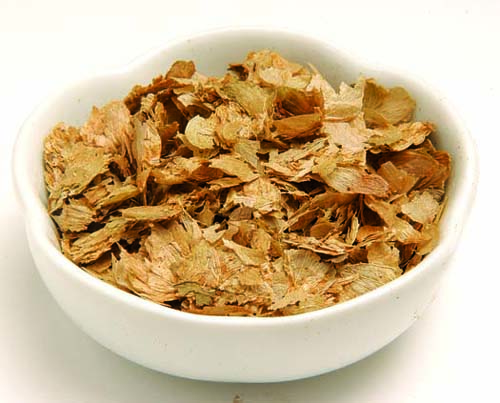
• Parts used Hops are the cone-like, fruiting bodies (strobiles) of the plant and are typically harvested from the cultivated female plants that contain gray seeds, which are covered with yellow glands. Hops are cultivated in the summer. The fruit can be used to make infusions, liquid extract, syrups, or pills.
NEUTRAL OILS
These types of oils are used to dilute essential oils for application on the skin. Essential oils should be mixed with a neutral or vehicle oil. It's recommended using grape seed oil and sweet almond oil, which can be found in supermarkets and pharmacies.

• A perennial vine that grows in humid conditions and needs plenty of sun. It grows in abundance in the northern Iberian Peninsula, but is widely cultivated throughout the world. It has a pleasant aroma and has a slightly bitter and spicy taste.
• Hops have been found to have mild sedative properties; fight insomnia, heart palpitations and excessive nervousness. The fruiting bodies are used to flavor beer, it has a bitter taste.

ESSENTIAL OILS FROM A TO Z
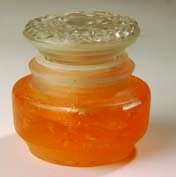
EUCALYPTUS
This essential oil's strong, potent and penetrating aroma helps you to rest and to freshen the air and atmosphere. It can revitalize your energy and reinforce the nervous system. Combine with bergamot, juniper, lemon and rosemary.
Safety. Shouldn't be used if you have high blood pressure or suffer from epilepsy. It should be diluted because eucalyptus can irritate the skin.
INCENSE
This oil can have special soothing properties that stimulate meditation. It is ideal to apply it at night, because it can induce a deep sleep. It slows down breathing, calming and relaxing the mind. With its warm, sweet and penetrating aroma it can create the perfect atmosphere for meditation. It doesn't have side effects. Mix with sandalwood, basil, bergamot and lavender.
Camomile
(Matricaria recutita L.)
• Parts used The flower-heads or capitula are harvested in the spring. Camomile can be prepared as a tea, using 1 generous spoonful per cup of boiling water. It is also used as a decoction and as tinctures.
• Although this plant is native to Europe, it is also grown in America.
• It calms the nerves and fights muscle spasms; it produces a wonderful soothing effect and aids the digestive system, especially when under stress.
• Warning It doesn't present any side effects, except for those who have allergies or who are sensitive to this plant.
INFUSION TO SLEEP WELL
Make an infusion mixing 1 to 2 teaspoons to 1 cup of boiling water. Set to steep and strain. Drink before going to bed. If camomile doesn't give the desired effect, try linden, lavender or passion flower, which have stronger properties.
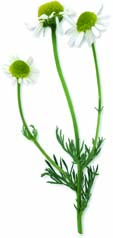
Lemon balm
(Melissa officinalis)
• Parts used The leaves are harvested in the summer before the flowers fully blossom and are used (fresh or dried) in a number of ways. An infusion of fresh lemon balm leaves is a great relaxing tonic. It can be used as a tincture, which is more potent.
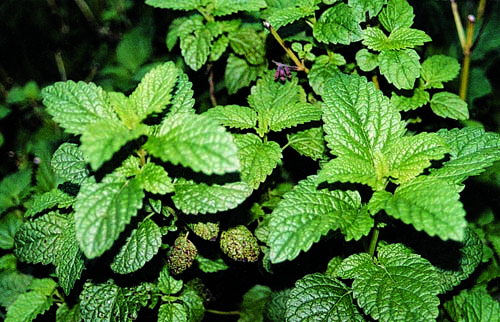
• Lemon balm has been used for centuries in Europe, the Far East and Northern Africa and is grown all over the world. It has a slight taste between bitter and sweet.
• It's used as a relaxing tonic that aids to relieve anxiety, slight depression, irritability and digestive problems caused by stress.
• Warning. It shouldn't be used if you suffer from hypothyroidism, because lemon balm can alter the level of thyroid hormones.
AROMATHERAPIES
• Oils for sleeping. A simple aromatherapy recipe that is effective for helping you sleep well: Place ¼ cup of distilled water in a spray bottle and add 7 drops of essential oil of lavender and 5 drops of marjoram oil. Spray the face and the sheets as a trick before going to bed.
• Harmonious room. Before going to sleep, its recommended to fill the room with a pleasant aroma with an indicated oil for sleeping, using a heating lamp. Place about 5 to 8 drops of essential oil in a heating lamp and let the oil evaporate.
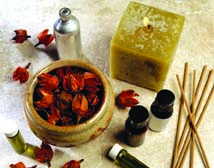
ESSENTIAL OILS FROM A TO Z

JASMINE
It carries anti-depressive, aphrodisiac, pain relieving and sedative properties. It regulates breathing, calms the nerves and gives a positive, confident outlook.
Safety. It shouldn't be used during pregnancy. However, it can be very beneficial during birth, because it helps to induce contractions and relieves pain.
LAVENDER
Balances the emotions and helps you rest, it also carries pain relieving properties. Its floral and clean aroma (its name comes from the Latin word lavare, which means “to clean") which has a regulating effect on the central nervous system and is helpful in cases of exhaustion. Blend with bergamot, camomile, geranium and neroli.
Safety. It shouldn't be used during pregnancy.
Passion flower
(Passiflora coerulea and P. incarnata)

• Parts used. The flowers and leaves are used in infusions. The fruit is edible.
• Native to Central America where it's grown most commonly in gardens. A species with similar characteristics, the Passiflora incarnata, is grown in Europe.
• Considered to be one of the best remedies against nervous attack, it doesn't have any side effects. Passion flower has sedative and soothing properties, but not depressive. It also makes you sleepy. Ideal for work related stress, mood swings and nervousness brought on by premenstrual syndrome and menopause.
• Warning. Do not use passion flower if you are pregnant or breast-feeding. Do not administer to children under 3 years of age. For children under 12 years of age, consult a medical specialist, because the dose should be proportioned to the weight of the child. Eat passion fruit only when very ripe, because the fruit has toxic properties before ripening.
SOOTHING INFUSION
With passion flower. Prepare an infusion with 2 tablespoons of the dried plant in 2 cups of boiling water. Set to steep and strain. Drink a few cups a day.
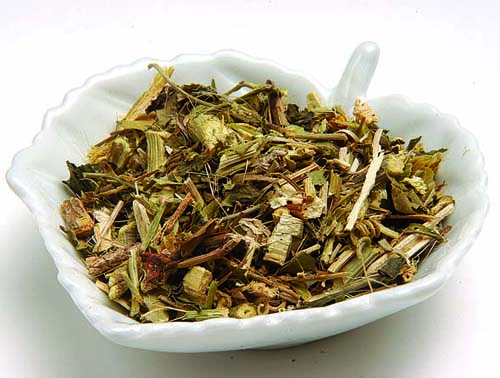
Linden
(Tilia sp.)
• Parts used. The flowers, leaves and stems, which can be used as an infusion, as decoction, or to macerate.
• It is also called lime blossom, linden flowers and tilia. It is native to Europe, where it grows in warm climates with clay like soil. It is also found in Asia and North and South America. Although it prefers to grow in a tropical climate, it also grows in some cold areas of Russia. There are different species which all share similar properties.
• Linden is a relaxing remedy for nervous tension and to soothe the heart and digestive system affected by stress. It has sedative and anti-spasm properties.

WITH LINDEN
Use 3 teaspoons of dried linden flowers and add to 4 cups of boiling water. Set to steep and strain. Drink when you have symptoms of nervousness.
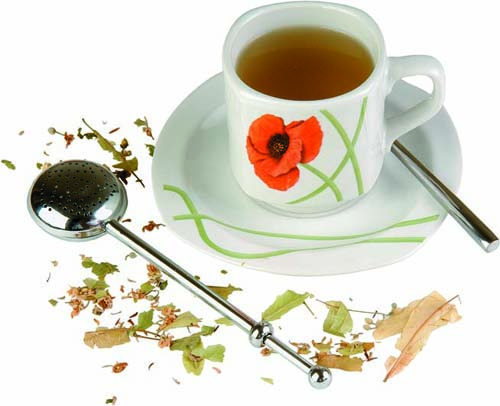
ESSENTIAL OILS FROM A TO Z
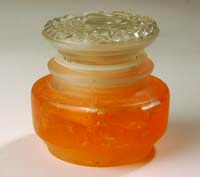
MARJORAM
It can have a calming effect on the central nervous system, reducing hyperactivity and calming anxiety, stress and emotional traumas. However, excessive use can make your mind less alert. It carries painkilling properties and helps to bring on sleep. Its intense herbal fragrance, mixed with almond oil, can work as an anti-depressant. Blend with lavender, camomile and ylang ylang.
Safety. Avoid during pregnancy. It is not advised for small children.
TANGERINE
Tangerine's long lasting, sweet, aromatic and floral aro m a calm s anxiety and helps depression. It has a hypnotic and calming effect on the central nervous system. It is recommended for pregnant women and children.
Safety. After using tangerine you should avoid exposure to direct sunlight.

Comment about this article, ask questions, or add new information about this topic: